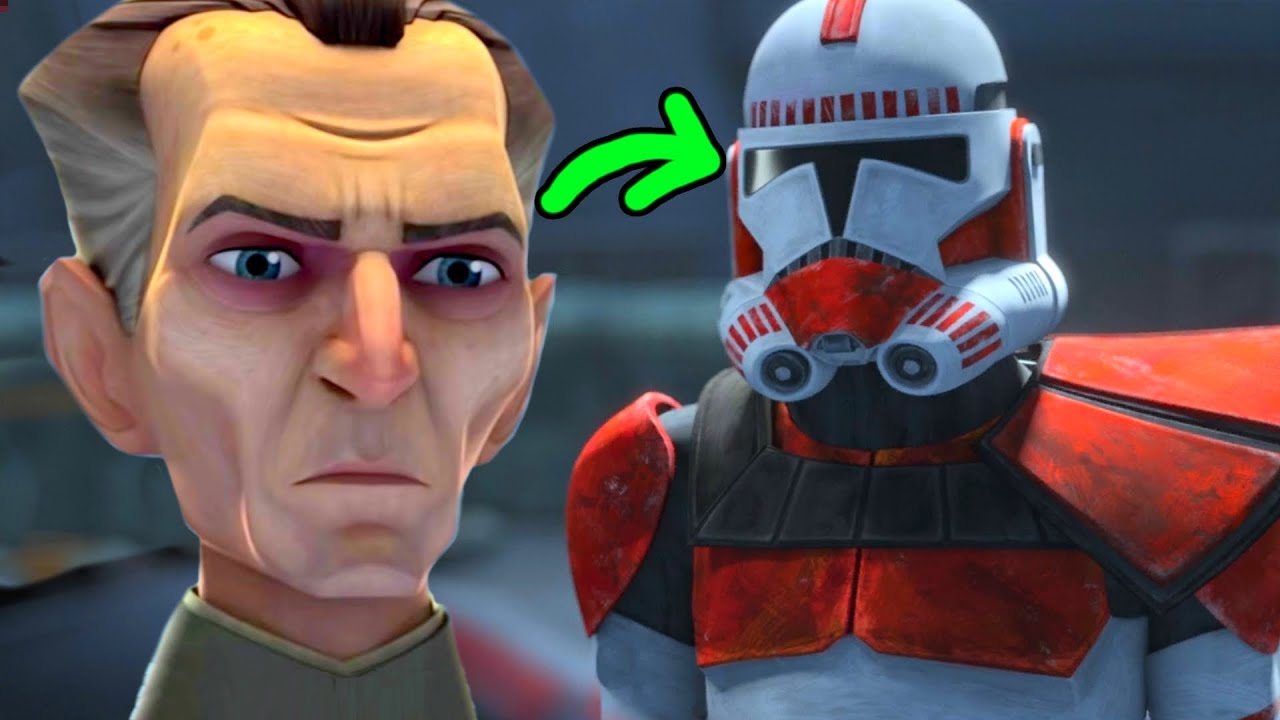Star Wars: The Bad Batch gives insight into why Wilhuff Tarkin decided to cut clones from the Imperial Army, a moment that shows how he revels in a form of highly bureaucratic and efficient type of evil from the very beginning of the Empire’s galactic footholds. According to Admiral Tarkin himself (who is not yet quite a Grand Moff), it’s much cheaper to conscript soldiers, although it seems as if he holds a personal grudge against clones, as well.
The Bad Batch is currently covering the little-explored territory of what, exactly, happened to the clone army immediately following Order 66. It’s clear that clone troopers were eventually phased out and replaced by human recruits, but until the new series’ first episode, the canon world of Star Wars has never given a definitive reason as to why the Empire made the switch. During Tarkin’s evaluation of the cloning facilities on Kamino, the recently anointed Imperial admiral points out that the Kamnioans’ contract was with the now-defunct Republic and not the newly established Empire. Since the galaxy is no longer in an active state of war, the extra cost to grow and train genetically engineered foot soldiers simply isn’t worth the Empire’s effort.
Of course, there’s a deeper reason for all of this, and this particular scene makes it evident as to why Tarkin grew to be so successful within the higher ranks of the Empire. Whereas the Republic was a democracy willing to participate in negotiations with lateral powers like the planet of Kamino, the Empire has no interest in distributing its wealth and depending on external forces to provide military aid. Tarkin, the power-hungry and efficiently cold commander that he is, would much rather depend on conscripts he can oversee himself than clone troopers, who have already proven to be finicky and individualistic in their own right.
Tarkin isn’t just trying to balance the Imperial budget, though. It’s implied that he personally dislikes and distrusts clones, probably because of their ties to the old Republic. These soldiers did, after all, maintain utmost loyalty to the Republic and the Jedi before their «programming» was activated during Order 66. That code of honor was clearly a lot more genuine than their robotic betrayal, which ironically makes the lab-bred clone troopers more of a liability than human beings the Empire can simply whip into shape through fear and control. The clones who were unaffected by their control chips, like most of the Bad Batch and Captain Rex, are far less sympathetic to the Empire.
There’s evidence to suggest that Tarkin is completely right to question the loyalty of clones, too. In the 19th episode of Star Wars: The Clone Wars season 3, titled «Counterattack,» Rex stands firmly on Ahsoka’s side when Tarkin criticizes her leadership, believing that the Jedi should adopt a more aggressive warfare strategy (Anakin, on the other hand, thinks Tarkin is on to something here.) In addition, the sixth season of The Clone Wars begins with a four-episode arc that sees clone trooper Fives trying desperately to uncover the control chip conspiracy in order to convince the Republic and the Jedi of the plot against them. Tarkin is probably aware of where the clones’ loyalties actually lie and perhaps doesn’t trust their programming enough to keep them in line. The tragedy of the otherwise honorable and sincere clones becoming slaves to Imperial whim looks like it will form a central theme of Star Wars: The Bad Batch.

